The actor who played the role of Chandler Bing, the protagonist in "Friends," Matthew Perry, passed away drowning in a bathtub. Since then, "Friends" would never be the same.
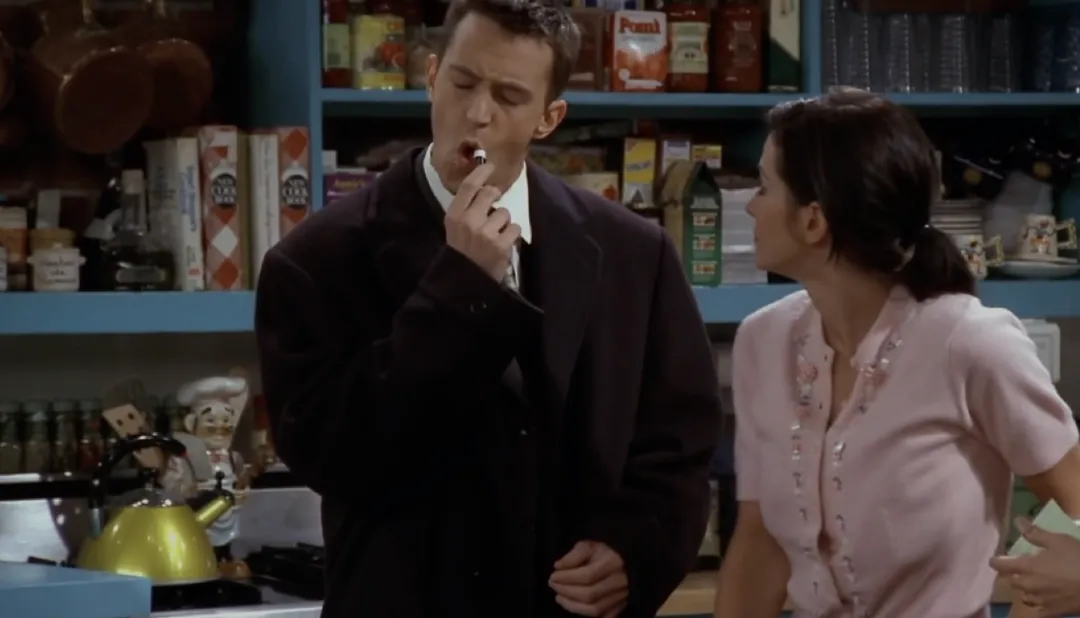
Chandler stood out as the favorite character in "Friends." He was witty, shy, and kind, a far cry from the typical American macho man. It was precisely these traits that endeared him to fans for more than 30 years.
"If I were a man..." The six friends sat on the couch in the coffee shop, and when Chandler said this with utmost sincerity, the others turned to gaze at him. It was in that moment he realized he had inadvertently placed himself in the "sister" category.
Chandler Muriel Bing had a unique background; his father was a glamorous drag queen, which led to his somewhat feminine middle name "Muriel." This name became a constant reminder of the "gender trouble" he frequently encountered, serving as a footnote in Chandler's life story.

In the first season of "Friends," Chandler sported soft brown curly hair, always wore shirts and vests, and was quick-witted and sarcastic with his friends but couldn't talk to women. His colleagues speculated that he might be gay, and his friends felt he had an undefinable "gay quality," or was the more sensitive one. During their banter, there were instances when his friends referred to him as "effeminate."
In the series, Chandler contrasted with his roommate Joey. Joey often showed "masculine charm" and could easily win women over with a simple "How you doin'?" He flaunted his shirtless body, flexed his muscles, and joked with his girlfriend, "Your 'mangina' voucher is about to expire."
In contrast, Chandler often had "girly" moments. He borrowed his friend Rachel's hypnosis tape to quit smoking and accidentally ended up brainwashed into becoming a "confident woman." He wrapped a towel around his chest before taking a shower, and even learned to use lip balm. Though being a little reluctant, he also accompanied Rachel to get a manicure.
From 1994 to 2004, this annual sitcom reflected real-life American society. In the show, Chandler struggled with his emotions, was not popular with women, and was even teased by Joey for his lack of sex appeal. His marginalized status in the show somewhat mirrored the prevailing aesthetic norms for men in the US during that period.
However, after the show aired, Chandler became the most popular character among the six friends. An American website once held a poll for the most popular character in "Friends," with 18,100 participants. Chandler received 12,001 votes, ranking first. On Douban, a Chinese movie platform, a "Friends" group conducted a poll on "Whom you'd most want to be friends with," and among 3,593 voters, 2,352 voted for Chandler, securing his top position.
The appreciation for Chandler in different eras and regions varies. When "Friends" first aired, its approach to relationships was quite progressive. In Western societies, many advocated separating "sex" from "love," with casual flings being common. Compared to Joey, the womanizer with countless lovers, and Ross, who has been divorced three times and has a "cheating" history, Chandler, although not the epitome of masculinity, was different. He was married to his friend Monica, loyal and content in his marriage, which aligned with the Eastern idea of an "ideal husband."
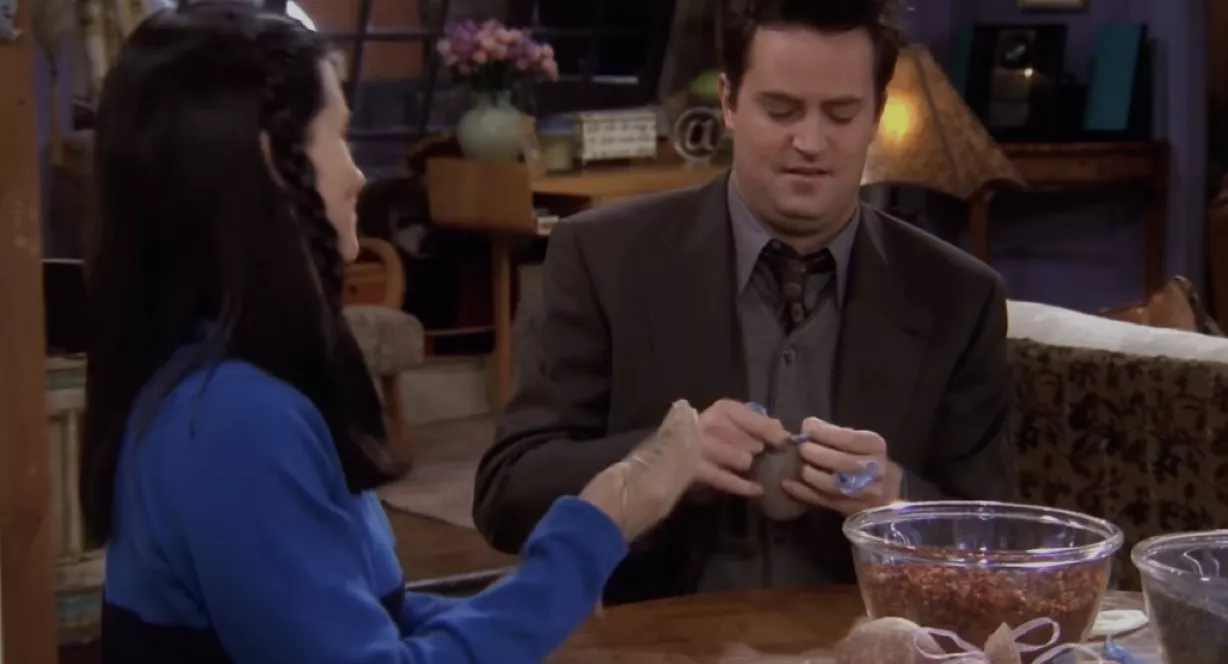
Over the past decade, feminist issues have gained prominence globally, and discussions about "toxic masculinity" have grown. The portrayal of men as brave, bold, and even aggressive or rude in past movies and TV series has become less appealing. In this context, Chandler's lack of traditional masculinity makes him somewhat revolutionary.
Taking a closer look at the three male leads in "Friends," Joey objectifies women, often likening them to "ice cream," and is physically forward, which could be considered harassment in real life. Ross, on the other hand, exhibits a bit of traditional male chauvinism, giving unsolicited advice and demanding his girlfriend's constant presence without respecting her work. In comparison, Chandler is the least "toxic."
Chandler, known for his sarcasm and apparent bitterness, actually has a tender heart. In the series, his parents' divorce and his father's identity as a drag queen subjected him to ridicule among his peers, leaving him with emotional scars.
In other portrayals of male characters in movies and shows, if they have issues with their upbringing, more often than not, these issues become the reasons for their violent and aggressive behaviour. However, Chandler's childhood trauma mainly shaped his "sensitive" traits, which are traditionally seen as feminine.
Because of his sensitivity, Chandler easily picked up on his friends' emotional shifts, offering them support with a tight hug or a sincere and reassuring, "You're the most beautiful woman I've ever seen, and you'll find someone who loves you."
Chandler's appeal lies in his slightly ambiguous and fluctuating nature, challenging conventional gender boundaries.
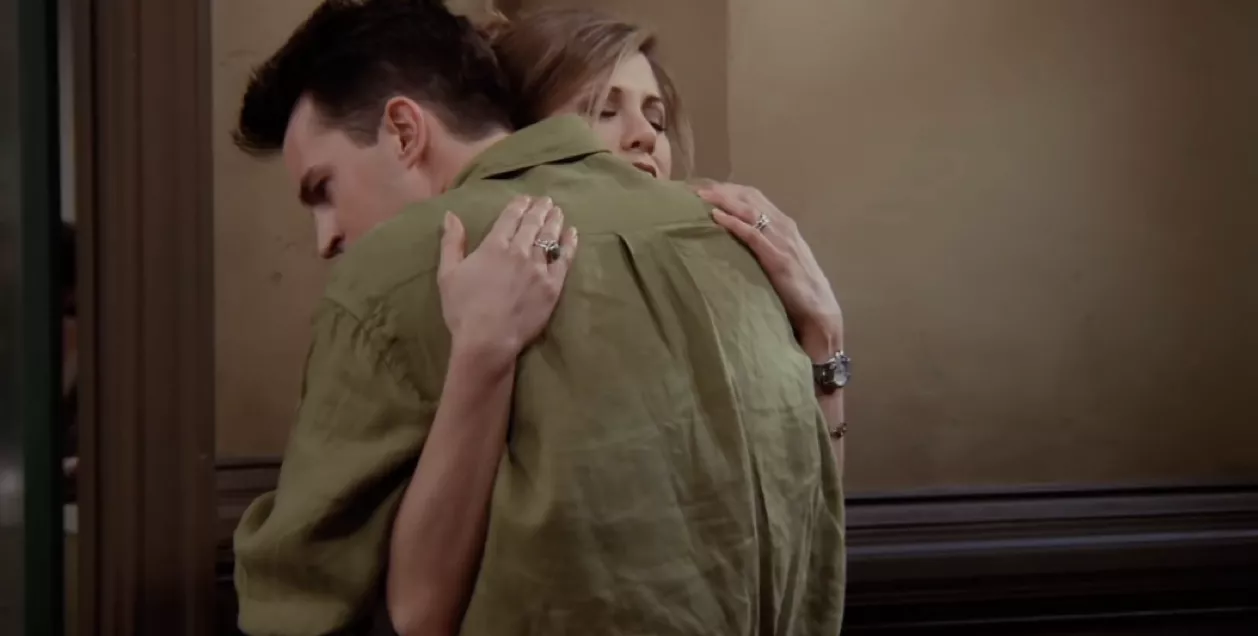
Chandler's predicaments in the show easily resonate with contemporary women. Today, it's often assumed that men are "ordinary and confident" while women tend to be self-doubting and self-reflective. In the show, Chandler lacks confidence, grapples with the meaningless aspects of his job, but is afraid to change. He demonstrates keen observation and perception in social situations, becoming notably uncomfortable when his friends face conflicts. He often resorts to humour to alleviate the tension.

Raising chicks and ducks with his roommate Joey, Chandler played the "mother" while Joey became the "father," juggling work commitments. Each "Friends" fan sees a reflection of themselves in the characters. Chandler, with his cheesy jokes and sometimes overly obsequious behaviour, represents the part of us that fears conflict and relationship breakdown.
Chandler isn't without flaws. He, too, falls into the trap of masculine stereotypes. In the early seasons, he appeared as an immature boy, struggling with commitment in relationships, avoiding conflicts, and suppressing his emotions. He asserted he never cried and deliberately acted more masculine to conform to societal expectations of a typical man.
What makes his character charming is that the writers gave him a complete character arc, gradually freeing him from these gender constraints to become a better "person."
His transformation was mainly credited to his close relationship with Monica. Initially, the writers planned for them to have just a one-night stand, but due to popular demand from the audience, they decided to invest more time in developing their relationship.
Chandler and Monica made an interesting and atypical couple. Monica was strong-willed and decisive, making decisions in most aspects of their lives, and she boldly declared herself as "always right."
Monica's proactive nature pushed Chandler to change. She went to great lengths to make Chandler cry, and through a series of events, he eventually opened up emotionally. She knew about Chandler's deep-seated issues with his father but insisted on supporting him in reconciling with his father. Their story also contained humour related to gender traits. After they got married, Chandler would assist Monica in making potpourri sachets, bubble baths, and even wore a pink bunny suit at a party as per her request. Chandler had moments of resistance but, overall, he accepted these "girlish" activities. The writers used these humorous scenes to portray the diverse possibilities in a marriage.
In "Friends," Chandler Bing was portrayed as an ideal husband. When Monica was offered a fantastic job in New York, it meant separation from Chandler, who was relocated to an underdeveloped area for work. The couple had a heart-to-heart discussion about whether Monica should stay or go. After making a few sarcastic comments, Chandler genuinely expressed his support for Monica staying in New York, saying, "This is your dream job, and I won't let you give it up. I'm proud of you." After spending time apart, Chandler decided to resign and return home one Christmas to seek new career prospects. Even though this meant they would have no income for a while, Monica fully supported his decision to explore a new career.
This storyline, produced in the early 21st century, depicted an idealized, equal, and mutually respectful marital relationship. It remains relevant in today's society and aligns with contemporary ideals of intimate relationships. That's why, even today, many people online view Chandler as the epitome of the perfect partner and see the "ChanMony" relationship as a guide to a loving partnership.
In 2015, "Friends" was released on the streaming platform Netflix, sparking a new wave of binge-watching and critical discussions online. Some critics found fault with the fact that all six main characters in "Friends" were white, lacking diversity in terms of race. Some also pointed out that certain jokes in the show were offensive and hinted at homophobia, transphobia, and fat-shaming.
Chandler, in particular, came under fire for his exaggerated portrayal of someone who struggled with his perceived homosexuality while his father was suggested to be transgender. Furthermore, his wife, Monica, had dealt with issues related to her weight, which made Chandler a focal point for criticism regarding these matters.
In a New York Times article, the writer, Ruth Graham, expressed her disappointment when revisiting "Friends" on Netflix in 2015. She had loved the show when it aired from 1994 to 2004, but upon rewatching, she found it to be outdated, and Chandler's character, in particular, appeared to be the most obsolete and unpleasant. She argued that Chandler, due to his lack of traditional masculinity, came across as bitter. While Monica had helped him reconcile with his father, his attitude toward his father was still unpleasant. Chandler detested his ex-girlfriend Janice but kept getting involved with her, even deceiving her repeatedly. In her opinion, Chandler was no longer lovable but had become a misogynistic jerk.
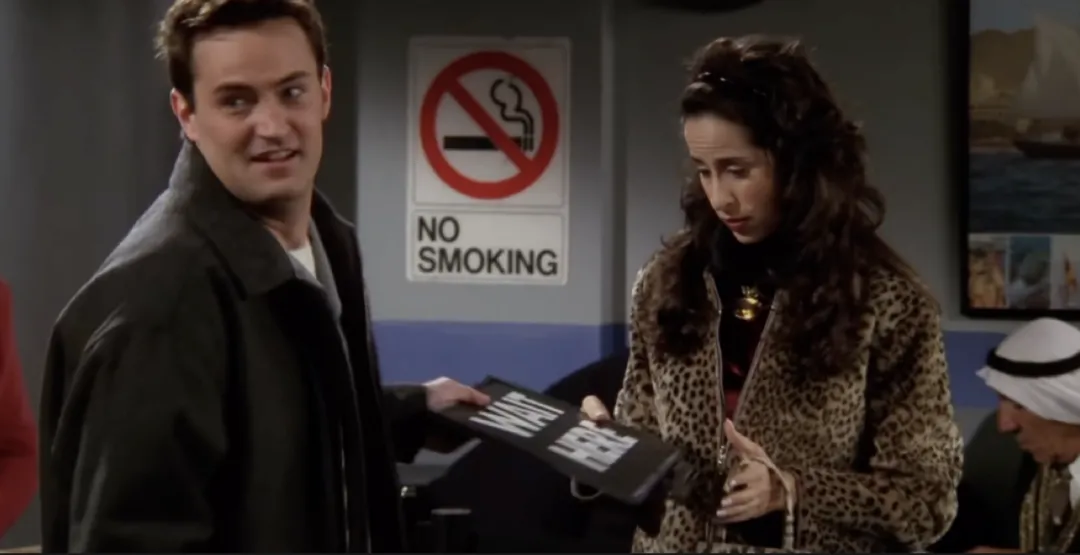
In the eyes of the writer, Chandler had ceased to be charming and seemed like a misogynist. She believed that if a friend of hers were acting like Chandler, she would want to slap him. In her eyes, Chandler is no longer adorable but appears to be a woman-hating jerk. Ruth writes in the article that maybe by 2015, Chandler will undergo some therapy and read feminist literature.
Reading this article now brings a wave of nostalgia. People's perceptions have changed over time. As a character, Chandler remained frozen in the final season of "Friends" in 2004. Matthew Perry, the actor who portrayed him, also stands as a relic of the past.
The show's creator, Marta Kauffman, responded to recent criticisms. "I don't think it's a question of being political correct," she said. "I think it's a question of education. I think, you have to look at the show and say, 'This was a different time. This was 20 years ago.' I hope that people learn. I hope that people don't do it again."
Evaluating a show produced in the 1990s from a contemporary perspective can be overly critical. Both the character and plot flaws are reflective of the society at that time. Changing these elements might strip the show of its authenticity. Moreover, Chandler's character, with its flexibility, marked a unique shift in male characters on screen. In today's dramas, discovering a husband character who wholeheartedly supports his wife's career is exceedingly rare.
In "Friends," Chandler discovers that the strange old man, Mr. Heckles, who lived upstairs, was quite similar to himself. After Mr. Heckles passes away, the friends go upstairs to clean out his apartment. Once everyone leaves, Chandler lingers for a moment. Gently closing the door, he softly says, "Goodbye, Mr. Heckles. We'll try to keep it down." In this moment, his tender and delicate side is fully revealed.
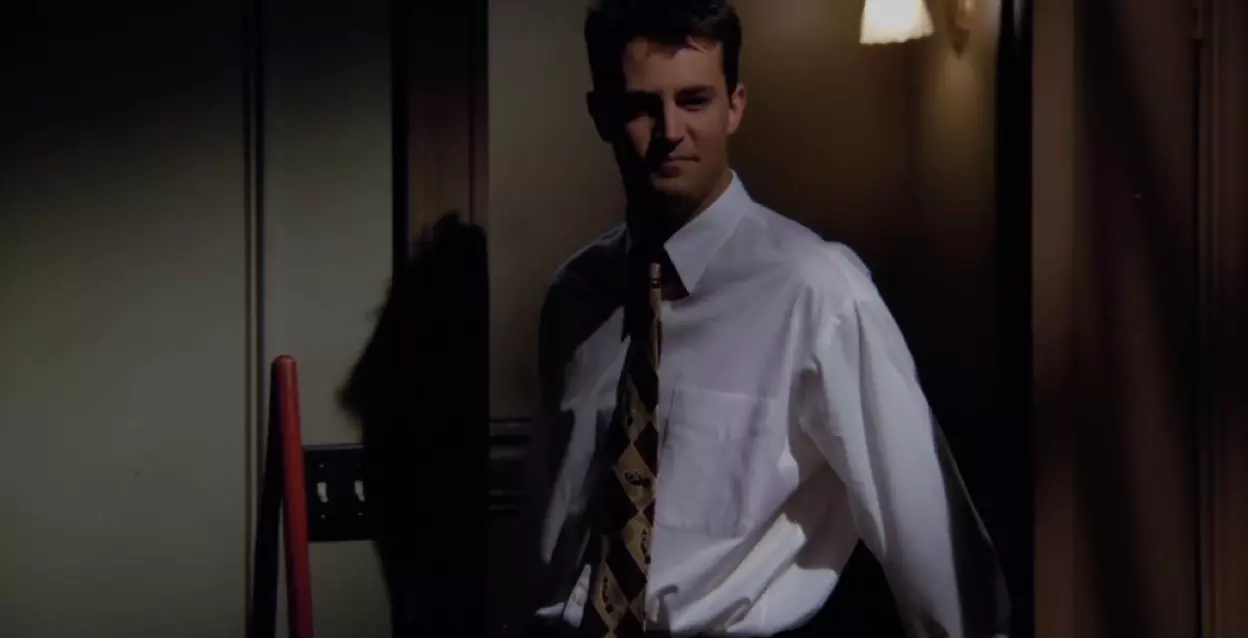
Actor Matthew Perry and Chandler Bing had many similarities in their personalities, yet their life paths were entirely different. Matthew Perry faced challenges with alcohol and substance abuse, endured several surgeries, and remained unmarried. If Chandler, from another realm, had learned about the passing of a similar friend, he might have bid him a gentle and tender farewell as well.


 Log in
Log in

No comments yet,
be the first one to comment!